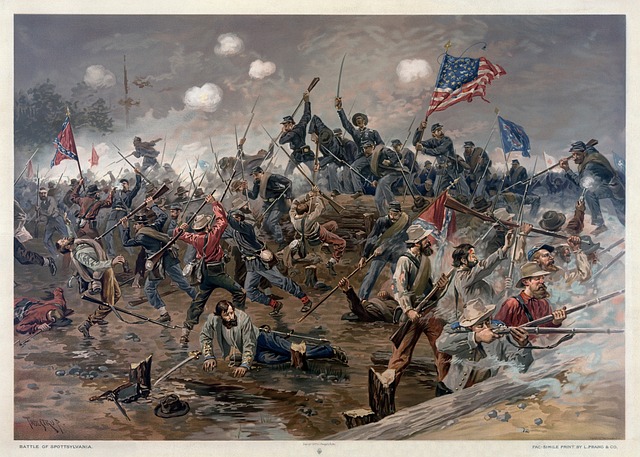Multnomah County contempt court orders are legally binding, with severe penalties for non-compliance, such as fines and imprisonment. These orders enforce previous rulings, like financial obligations or specific actions, and require a meticulous process to assess willful violations. Legal professionals guide clients through this complex process, ensuring understanding of obligations and potential consequences. All parties involved in Multnomah County contempt disputes have defined rights and responsibilities, emphasizing the importance of adhering to court decisions for fair resolutions. Proactive communication, clear expectations, and regular legal guidance are crucial strategies to prevent and resolve these disputes amicably.
In Multnomah County, ensuring compliance with court orders is paramount to maintain justice and fairness. This article delves into the intricacies of understanding and navigating contempt court orders, focusing on their implications for all parties involved. We explore legal rights and obligations, present strategies to prevent and resolve disputes, and emphasize the critical role of legal professionals in fostering adherence. By comprehending these aspects, residents can effectively manage Multnomah County contempt disputes and uphold the integrity of the judicial system.
- Understanding Contempt Court Orders in Multnomah County
- The Implications of Violating a Court Order
- Legal Rights and Obligations for All Parties Involved
- Strategies to Prevent and Resolve Contempt Disputes
- The Role of Legal Professionals in Ensuring Compliance
Understanding Contempt Court Orders in Multnomah County

In Multnomah County, contempt court orders are legally binding decisions issued by a judge to enforce compliance with previous court orders. These orders are crucial in ensuring that parties involved in legal disputes adhere to the terms set forth by the court, such as paying financial obligations or fulfilling specific actions. Failure to comply with these orders can result in severe consequences, including additional fines and potential imprisonment.
Multnomah County contempt disputes involve a thorough process where the court examines whether the alleged contemnor has willfully violated the original order. Understanding the specifics of the order and its requirements is essential for all parties involved. Legal professionals play a significant role in guiding clients through this process, ensuring they fully comprehend their obligations and the potential ramifications of non-compliance, thereby promoting a smoother resolution.
The Implications of Violating a Court Order

Violating a court order in Multnomah County contempt disputes can have significant and lasting implications for individuals or entities involved. Such actions can lead to severe legal consequences, including hefty fines, imprisonment, or both. The court’s authority is challenged when an order goes unenforced, potentially undermining its ability to deliver justice effectively. This can create a precedent that weakens the integrity of the entire legal system in Multnomah County and beyond.
Moreover, individuals who violate contempt orders may face additional penalties tailored to the specific circumstances. These penalties aim to deter future non-compliance and ensure respect for judicial processes. In cases involving family law or civil disputes, violation of orders can disrupt ongoing negotiations or agreements, leading to further legal complications and increased costs. Therefore, understanding and adhering to court orders is paramount to avoid these adverse consequences in Multnomah County contempt disputes.
Legal Rights and Obligations for All Parties Involved

In Multnomah County contempt disputes, all parties involved—whether individuals, businesses, or organizations—have specific legal rights and obligations they must uphold to ensure fair and just resolution. This includes the right to be heard, present evidence, and challenge allegations, as well as the obligation to comply with court orders without delay or hindrance. Non-compliance can lead to severe consequences, including further legal action and potential penalties.
Understanding these rights and responsibilities is crucial for navigating Multnomah County contempt disputes effectively. All parties are expected to act in good faith, cooperate with legal processes, and demonstrate a commitment to adhering to the court’s decisions. This not only facilitates a smoother legal journey but also ensures that justice is served for all involved.
Strategies to Prevent and Resolve Contempt Disputes

Preventing and resolving Multnomah County contempt disputes requires proactive strategies from all parties involved. One key approach is open communication, where individuals in dispute make concerted efforts to dialogue and understand each other’s perspectives. This can often avert potential contempt issues before they escalate. Establishing clear expectations and deadlines set by the court can also mitigate conflicts. Regular check-ins with legal representatives or designated court officials ensure everyone remains aligned with the order’s requirements.
Another effective strategy is to maintain thorough records of all interactions, communications, and agreements made during the course of the case. Documentation provides transparency and serves as a reference point for resolving disagreements amicably. In cases where emotional tension runs high, seeking mediation or arbitration can offer impartial third-party intervention, fostering collaborative problem-solving and reducing the likelihood of contempt charges.
The Role of Legal Professionals in Ensuring Compliance

Legal professionals play a pivotal role in ensuring compliance with court orders, particularly in cases involving Multnomah County contempt disputes. Attorneys and legal advisors are tasked with guiding their clients through the complex process of understanding and adhering to legal requirements. They provide critical insights into the specific mandates outlined in court orders, breaking down intricate legal language to ensure complete comprehension.
These professionals employ various strategies to secure compliance. This includes regular communication with clients to monitor progress, offering strategic advice on potential obstacles, and preparing for contingency plans if non-compliance arises. Moreover, they facilitate open dialogue between all parties involved, fostering an environment of transparency and accountability, which is essential in resolving Multnomah County contempt disputes effectively.






